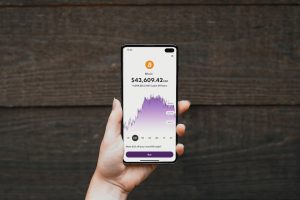Low Commission vs. No Commission Forex Brokers: Which is Better for You?
When it comes to choosing a forex broker, one of the key factors to consider is the commission structure. Forex brokers typically make money by charging a commission on each trade executed through their platform. However, there are two main types of commission structures: low commission and no commission. In this article, we will explore the differences between these two types of brokers and help you determine which one is better for you.
Low Commission Forex Brokers
Low commission forex brokers charge a small fee for each trade executed on their platform. This fee is usually a fixed amount per lot or a percentage of the trade value. The advantage of low commission brokers is that they offer transparent pricing, allowing traders to see exactly how much they are paying for each trade. This can be particularly beneficial for those who trade frequently or in large volumes.
One of the main benefits of low commission brokers is that they often offer tighter spreads compared to no commission brokers. Spreads refer to the difference between the buying and selling prices of a currency pair, and they represent the cost of trading. By offering tighter spreads, low commission brokers can help traders save money on their trades in the long run.
Another advantage of low commission brokers is that they may provide additional services or features that can enhance your trading experience. For example, some low commission brokers offer advanced charting tools, educational resources, or access to research reports. These additional services can be valuable for traders who want to improve their skills or make more informed trading decisions.
However, it’s important to note that low commission brokers may not always be the best option for all traders. The cost of commissions can add up, especially for those who trade frequently or with large volumes. Therefore, if you are a beginner trader or have a limited trading capital, the commissions charged by low commission brokers may eat into your profits significantly.
No Commission Forex Brokers
No commission forex brokers, on the other hand, do not charge a fee for each trade executed on their platform. Instead, they make money by widening the spreads. This means that the buying and selling prices of currency pairs offered by no commission brokers are slightly higher compared to low commission brokers. The difference between the two prices represents the profit for the broker.
One of the main advantages of no commission brokers is that they are often more accessible to beginner traders or those with limited trading capital. By eliminating the commission fees, these brokers allow traders to enter and exit trades without incurring additional costs. This can be particularly beneficial for those who are just starting out and want to get a feel for the forex market without risking too much capital.
Furthermore, no commission brokers are generally more suitable for traders who do not trade frequently or in large volumes. Since there are no commission fees, these brokers can be more cost-effective for those who execute trades less frequently.
However, it’s important to consider the potential drawbacks of no commission brokers. The wider spreads offered by these brokers can make it more challenging to generate profits, especially for scalpers or traders who rely on short-term price movements. Additionally, the lack of additional services or features provided by no commission brokers may limit the resources available for traders to improve their skills or enhance their trading strategies.
Which is Better for You?
In conclusion, the choice between low commission and no commission forex brokers depends on your trading style, frequency, and trading capital. If you are a frequent trader or trade in large volumes, low commission brokers may be more suitable for you due to their tighter spreads and additional services. On the other hand, if you are a beginner trader or have limited trading capital, no commission brokers may be a more cost-effective option.
Ultimately, it’s important to carefully evaluate your trading needs and goals before making a decision. Consider factors such as trading costs, spreads, additional services, and accessibility to determine which type of broker aligns with your requirements. By doing so, you can find a forex broker that offers the best value for your trading journey.






